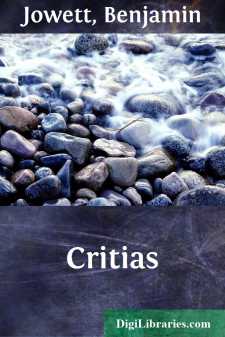Fiction
- Action & Adventure 180
- Biographical 15
- Christian 59
- Classics
- Coming of Age 5
- Contemporary Women 3
- Erotica 8
- Espionage/Intrigue 12
- Fairy Tales, Folklore & Mythology 236
- Family Life 169
- Fantasy 117
- Gay 1
- General 596
- Ghost 32
- Historical 808
- Horror 43
- Humorous 160
- Jewish 25
- Legal 4
- Medical 22
- Mystery & Detective 315
- Political 49
- Psychological 41
- Religious 64
- Romance 159
- Sagas 11
- Science Fiction 730
- Sea Stories 113
- Short Stories (single author) 537
- Sports 10
- Suspense 1
- Technological 8
- Thrillers 2
- Urban Life 31
- Visionary & Metaphysical 1
- War & Military 173
- Westerns 199
Classics Books
Sort by:
CHAPTER I. PLANT LIFE. The fact that plants, in common with man and the lower animals, possess the phenomena of life and death, naturally suggested in primitive times the notion of their having a similar kind of existence. In both cases there is a gradual development which is only reached by certain progressive stages of growth, a circumstance which was not without its practical lessons to the early...
more...
by:
Eugene Sue
CHAPTER I. PUNISHMENT. We will again conduct the reader into the study of Jacques Ferrand. Availing ourselves of the loquacity of the clerks, we shall endeavour, through their instrumentality, to narrate the events that had occurred since the disappearance of Cecily. "A hundred sous to ten, if his present state continues, that in less than a month our governor will go off with a pop." "The...
more...
by:
Daniel Defoe
It deserves some notice, that just at, or soon after writing these sheets, we have an old dispute warmly revived among us, upon the question of our trade being declined, or not declined. I have nothing to do with the parties, nor with the reason of their strife upon that subject; I think they are wrong on both sides, and yet it is hardly worth while to set them to rights, their quarrel being quite of...
more...
by:
Walter E. Weyl
CHAPTER I AMERICA AMONG THE NATIONS The Great War has thrown America back upon itself. It has come as a test and challenge to all our theories. Suddenly, yet subtly, it has shaken our optimism and undermined our faith in the peaceful progress of humanity. Our isolation is gone, and with it our sense of security and self-direction. Americans, who a few days ago would have dared to abolish army and navy...
more...
CHAPTER I A MARVELOUS INVENTION I am a hero worshiper; an insatiable devourer of biographies; and I say that no man in all the splendid list ever equaled Edmund Stonewall. You smile because you have never heard his name, for, until now, his biography has not been written. And this is not truly a biography; it is only the story of the crowning event in Stonewall's career. Really it humbles...
more...
I "IN THE BEGINNING—GOD" Religion is the relation between man and his Maker—the most important relationship into which man enters. Most of the relationships of life are voluntary; we enter into them or not as we please. Such, for illustration, are those between business partners, between stockholders in a corporation, between friends and between husband and wife. Some relationships, on the...
more...
by:
Irving Bacheller
KEEPING UP WITH LIZZIE IN WHICH THE LEADING TRADESMEN OF POINTVIEW BECOME A BOARD OF ASSESSORS The Honorable Socrates Potter was the only "scientific man" in the village of Pointview, Connecticut. In every point of manhood he was far ahead of his neighbors. In a way he had outstripped himself, for, while his ideas were highly modern, he clung to the dress and manners that prevailed in his...
more...
CHAPTER I. THE CROWN PRINCE RUNS AWAY The Crown Prince sat in the royal box and swung his legs. This was hardly princely, but the royal legs did not quite reach the floor from the high crimson-velvet seat of his chair. Prince Ferdinand William Otto was bored. His royal robes, consisting of a pair of blue serge trousers, a short Eton jacket, and a stiff, rolling collar of white linen, irked him. He had...
more...
by:
Benjamin Jowett
CRITIAS. PERSONS OF THE DIALOGUE: Critias, Hermocrates, Timaeus, Socrates. TIMAEUS: How thankful I am, Socrates, that I have arrived at last, and, like a weary traveller after a long journey, may be at rest! And I pray the being who always was of old, and has now been by me revealed, to grant that my words may endure in so far as they have been spoken truly and acceptably to him; but if unintentionally...
more...
THE ATHEIST "I worship no one," cried the atheist. "Divinities are senseless, useless, barriers to progress and ambition, a curse to man. Gods, fetiches, graven images, idols—faugh!" On the atheist's work-table stood the photograph of a beautiful girl. II The Devil, finishing his seidel of Würzburger, eyed the young man quizzically. "What would you of me?" he said....
more...











